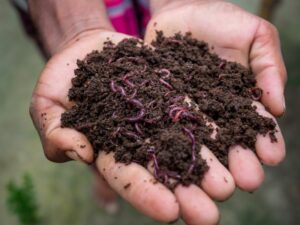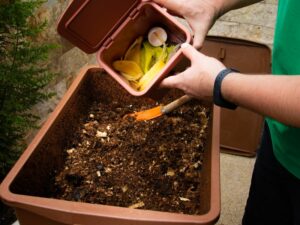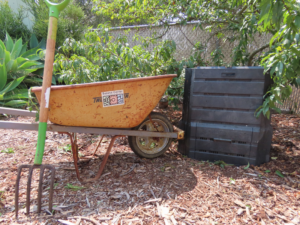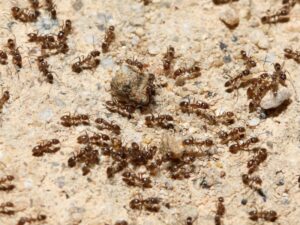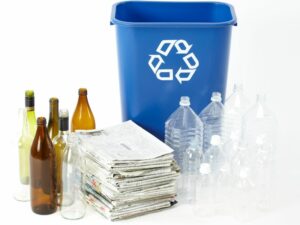Posts by admin
Picnic in sustainable style!
The weather is warm and the sun is shining, making it a lovely time to picnic. It’s easy to wrap your picnic food in plastic wrap, put it all in a bag and throw all your trash away at the nearest trashcan. However, the earth, the water, the landfill, and your garden will all thank…
Read MoreCompost: It’s Alive!
The physical and chemical conditions in a compost heap seem logical if you think about what compost really is: an enormous pile of food for billions of minute organisms. These microorganisms have certain chemical requirements, including carbon for energy, nitrogen to build proteins, and oxygen for respiration. The most numerous organisms in a compost pile…
Read MoreCheck out the work we did together! | Impact Report
We are proud to share our organization’s latest Impact Report. With the support and enthusiasm of our community, we: Undeterred by continued pandemic-related restrictions and challenges, Solana Center retooled our programs for virtual education; contactless electronic, universal, and food waste collection; online purchases; and even social-distanced and virtual volunteer opportunities. The dedication of our staff…
Read MoreWorm Tea, Compost Tea & Leachate
Did you know that you can steep your finished compost or vermicompost in water to create a nutrient-rich liquid called “compost tea” that enriches soil and reduces plant pests and disease? Worm tea, a type of compost tea made from vermicompost, has the same benefits as worm castings but in liquid form. Castings are produced…
Read MoreFrom the Rotline: How Long Until My Compost Is Ready To Use?
Rotline Question: How long will it take until my compost is ready to be used? Answer: The timeline for composting depends on a number of factors. There are three basic approaches to composting which can be mixed and matched based on resources available and the composter’s goals. They are passive composting, active composting, and hot…
Read MoreHow to Save Your Worm Bins From Aggressive Ants
How do you save your worm bins from aggressive ants? To find the answer, we asked our summer college interns, Maddie and Kelly, to investigate. The worm bins at Solana Center recently experienced an increase in ant populations, possibly due to the decomposing food source and the moisture the bins provided. Although most species of ants will not harm…
Read MoreRecycling – Why is it important?
Recycling conserves natural resources and lets us skip the harmful extraction and refining process that goes into making products from virgin materials. Making stuff from the materials of other stuff uses less energy and water and stops that stuff from filling our landfills. Recycling one… Plus, recycling accounts for 3.1 million jobs in the U.S.…
Read MoreMethods to Reduce Waste
Waste occurs in many areas of a business, but each cause of waste has a myriad of solutions that will reduce waste, save money, and build a more dedicated team and customer following. Once you understand what is being wasted in your business and why, you can begin to reduce this waste by implementing some…
Read MoreUnderstanding Your Business’s Waste
The first and most important step to reducing waste is understanding what you are wasting and why. Food waste from restaurants can occur before the food is served from over-ordering ingredients, improper storage, and inefficient menus, or after the customer has received the food because of too large portion sizes and wasteful serving practices. There are…
Read MoreEPS Food Container Alternative List
EPS is “expanded polystyrene,” commonly known by the brand name Styrofoam™. There are environmental concerns with EPS, including difficulty in recycling, source of man-made marine debris, and greenhouse gas emissions from the embedded energy of the manufacturing process. Additionally, EPS food containers are not fully recyclable in a single-stream process because they break up in…
Read More

